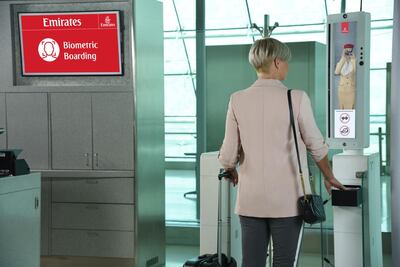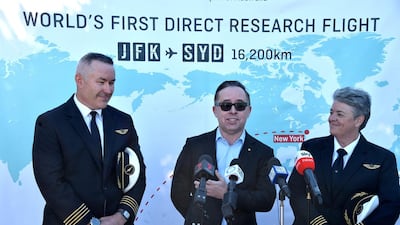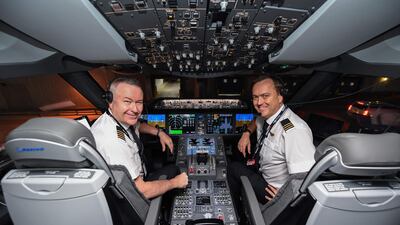From Airbnb's dominance of the accommodation sector to the rise and fall of influencers, the advent of apps to help search, book and organise our trips, and the appearance of robots at airports, the travel landscape has evolved dramatically in the past 10 years. We take a look at how both the places we visit and how we travel has changed.
A home from home
It would be impossible to look at the past decade of travel without mentioning Airbnb. The accommodation platform sneaked on to the scene in 2008, but found its first real success in 2009, when it shifted its focus from shared spaces to all types of lodging. Back then, it had 2,500 listings and less than 10,000 registered users. In 2011, it expanded internationally and today has more than six million listings and 150m-plus users.
The accommodation platform also transcends generations – millennials account for more than 60 per cent of travellers who have booked an Airbnb stay, but the fastest-growing host demographic is seniors. There are more than 200,000 senior hosts now registered on the platform.
Today, on any given night, two million people are staying in Airbnb rentals across the world – a testament to the impact it has had on how we travel.
The rise and fall of the bucket list

Ten years ago, travel was all about ticking a place off your bucket list – we wanted to spend a summer day in Paris, see the Pyramids in Giza or walk the Great Wall of China. More often than not, it was also about going to some of the most popular places on the planet, which helped fuel one of the biggest travel issues of the decade: overtourism.
The growth of Airbnb helped to slow this bucket list trend by putting more localised experiences within easier reach of many travellers. In 2016, the company introduced Airbnb Experiences, giving travellers the chance to book workshops and excursions with locals. This year, it paired up with the Adventure Travel Trade Association to offer Airbnb Adventures, allowing travellers to ditch the well-trodden path and go on immersive excursions with guides.
According to TripAdvisor's 2019 trends report, travellers now prioritise experiential activities, workshops, family-friendly activities and wellness experiences. These are the fastest-growing categories booked during trips. As we roll into the next decade with a focus on immersive trips, it's a relief to see fewer people holidaying like bucket-list-driven tourists and more like travellers.
Doing it for the 'gram'?
Since Instagram launched nearly a decade ago, it has paved the way for a selfie-obsessed, airbrushed generation of Insta-travellers and a new kind of celebrity: the influencer. This bewildering group of people use the platform to document their lives by showing photos of how they travel, eat and dress, all in the hope of influencing others to do the same. For successful influencers, revenue was suddenly limitless, as brands threw dirhams at these newfound celebrities to endorse products, trips, airlines and destinations.
Many travel and lifestyle influencers made a positive contribution, giving a voice to minority sections of society who were largely ignored in the days before social media. Some influencers championed topics such as sustainable or halal travel, or solo female adventures, providing valuable content for travellers seeking more niche experiences.
But the space quickly became cluttered. In 2017, the sway of influencers began to collapse when we all found out about the Fyre Festival scandal, in which some of the world’s most high-profile influencers inadvertently promoted a fraudulent music festival.
A year later, new advertising rules decreed that influencers had to explicitly state when they were being paid to promote something. This was a sharp pin in what was already a delicate bubble. A recent study by analytics company InfluencerDB indicates that across specialised subjects – including travel – engagement with influencers has fallen by an average of 37 per cent over the past year.
Travel-to-go
The decade also brought us travel apps. As travellers became more digitally savvy and mobile focused, technology endeavoured to keep up. Kayak and TripIt were two of the first major apps to hit the market, followed by other big-hitters such as Skyscanner and Airbnb. All have been instrumental in changing the way people think about, plan and book travel.
A recent global study by Travelport Digital showed that 58 per cent of people prefer apps over any other digital method when searching for flights, and 53 per cent prefer apps when it comes to finding holiday accommodation.
Uber is one of the largest internet marketplaces created and another of the decade's success stories. The ride-hailing app launched in 2009 and, despite bad press relating to driver working conditions and passenger safety, has revolutionised how people travel overland. Today, it exists in more than 700 cities and people take 14 million Uber trips every day.
Robot check-ins

Robots have yet to go mainstream in travel, but in some places the bots are already making an impact. Look to M Hotel in Singapore, which now uses friendly looking bots to deliver room service or whip up eggs at breakfast. In the US, Aloft hotels use androids to deliver small items to guests' rooms and at a Hilton hotel in Vancouver, there's a robot concierge. At airports around the world, robots have also been helping out. Amsterdam Schiphol's Spencer was introduced in 2016 to help passengers navigate the terminals. And at Tokyo Haneda Airport, Nao the robot updates travellers with information on flight schedules and security.

Facial recognition technology powered by AI and biometrics has also become increasingly prevalent over the past 10 years. In China, Fliggy's FlyZoo Hotel uses facial recognition to allow guests to enter hotel rooms or gain access to lifts. In Dubai, Emirates ran a successful test on registered passengers who were able to fly without showing their passports or boarding passes at the airport. Instead of documentation, the airport's new biometric system used a combination of iris scanning and facial recognition technology to identify travellers. The airline is planning to launch similar biometric journeys for more passengers in the near future.
Flying further, longer, faster
When it comes to flying, where we can go has expanded exponentially. Locally, Emirates has grown from operating a fleet of 124 aircraft serving about 100 destinations in 2009, to owning the world's largest fleet of Airbus A380 and Boeing 777 aircraft, and serving a network of 155 airports in more than 80 countries. In Abu Dhabi, Etihad Airways has also grown, with the national airline of the UAE flying passengers to 84 destinations in 49 countries with a fleet of 102 aircraft. A decade ago it had only half that number of planes.
Low-cost air travel has also been a buzzword in the past 10 years. Flydubai has added several routes to its network and there's more to come as Etihad and Air Arabia announced that Abu Dhabi's first low-cost airline, Air Arabia Abu Dhabi, is set to take flight next year.
Elsewhere, Qantas has been busy expanding flight paths as part of its Project Sunrise. Dedicated to researching the impact of ultra-long-haul flying on travellers, the Australian airline has flown three of the world’s longest flights (from New York and London to Sydney) with flight times of almost 20 hours. Whether these types of journeys will become a reality remains to be seen, but the test flights were a big first for the world of aviation.
Making informed decisions

Sadly, air travel has also been in the spotlight for other reasons. The 2010s will be known as the decade when more travellers than ever before started to take note of the type of aircraft they would be flying on.
Unfortunately, this can be attributed to two crashes on Boeing’s bestselling jetliner, the 737 Max. The aircraft had two disasters in the space of six months and hundreds of people lost their lives.
Since then, travellers have been reluctant to fly on a Boeing 737 Max and, for the first time, large numbers of passengers started checking which plane they were due to fly on before booking travel. Shortly after the second incident, authorities grounded the ill-fated aircraft. Since then, the 737 Max has remained on the tarmac. Plans are under way to reinstate the aircraft, but it's hard to know if customers will be willing to use it. After a century of flying, Boeing will probably remember this decade as its biggest disaster.
The Greta effect

The 2010s have also been the decade of Greta, thanks to the work of teenage Swedish climate activist Greta Thunberg.
In 2009, the youngster was barely six years old. Today, at 16, she’s captured the imaginations of young people around the globe, encouraging them to think about the planet and responsible travel. She reiterated her point by sailing to the US on an emissions-free yacht to attend a climate change summit, a move that helped Greta’s flight-shaming movement gather pace.
As well as the flight shame movement (or flygskam in Sweden, where it began) being about feeling accountable for your carbon footprint when you jet off somewhere, it is also about rediscovering the joy of slow travel – something that could benefit everyone in today’s fast-paced society.
The Greta effect has also forced travel companies to pick up their glacial pace in finding solutions to help mitigate the negative impact of travel on the planet. Earlier this year, Etihad made history by flying the world’s first ultra-long haul single-use-plastic-free flight. More recently, low-cost carrier Easyjet announced it is to become the world’s first zero-carbon airline.
Travellers of all ages are now more environmentally conscious than they were in 2009, and people are seeking new ways to offset emissions from air travel. A study by the University of British Columbia, in partnership with the US Environmental Defense Fund, found that the majority of travellers are willing to pay more for flights, if airlines can guarantee the fee goes to offsetting carbon.
Exploring the Middle East
In the past 10 years, the number of travellers around the world has grown from an estimated 950.8m in 2009 to more than 1.4 billion in 2019, according to the World Travel and Tourism Council. France remains a firm favourite – having topped the polls for inbound tourists in 2009 and again in 2019.
It has also been a decade of celebration for travel in the Middle East, though, with the region experiencing a surge in visitor numbers.

In the 2010s, Dubai led the charge, attracting more foreign arrivals than any other city in the region. Today, the UAE attracts inbound tourists across all of its emirates, with Ras Al Khaimah breaking records in adventure travel and Abu Dhabi carving a space for itself on the world map of cultural destinations.
In Jordan, tourism has also grown, with 19.2 per cent of the country's GDP coming from travel and tourism in 2019. Egypt has also been one to watch as tourists returned to the country after travel restrictions were lifted, new airports were opened and The Grand Egyptian Museum gears up to open its doors.
Perhaps the defining moment of the decade for the Middle East travel scene happened in September, when Saudi Arabia launched tourism visas after being closed to outsiders for decades. With travellers now able to visit the kingdom, the country has invested millions in development, with new hotels, resorts, regions and festivals launching regularly. More than 24,000 tourists visited Saudi Arabia within 10 days of the new visa system being unveiled, cementing the kingdom's chapter as the final flourish in an exciting decade of travel.
_________________
Read more:
World's longest flight takes off: non-stop London to Sydney
Travel, but tread lightly: a look at why we must up our social responsibility
Dubai: the world's busiest airport to start phasing out single-use plastic in January
_________________























